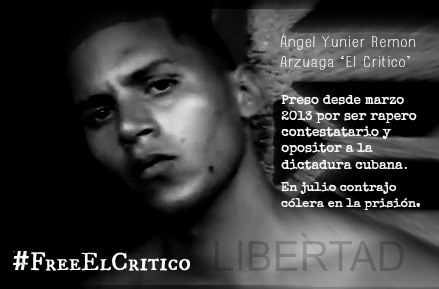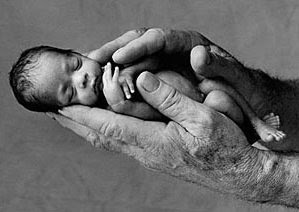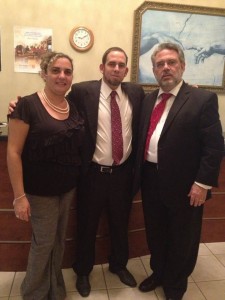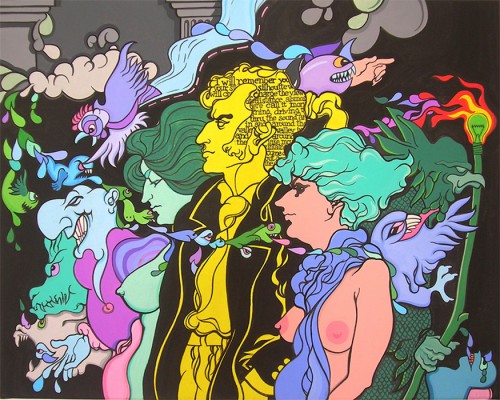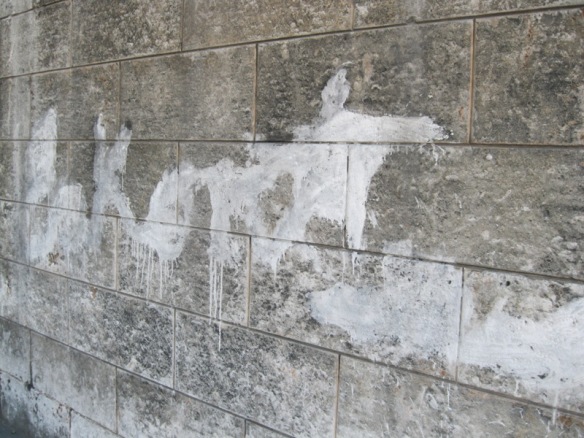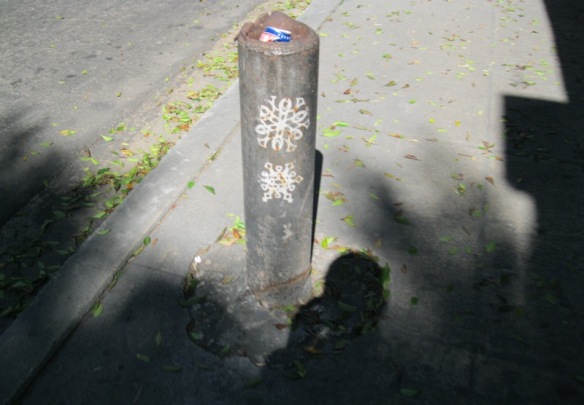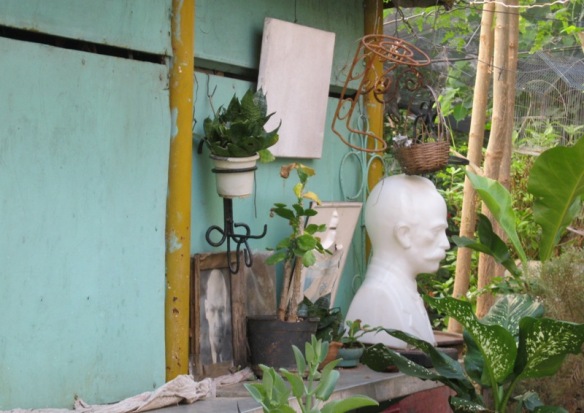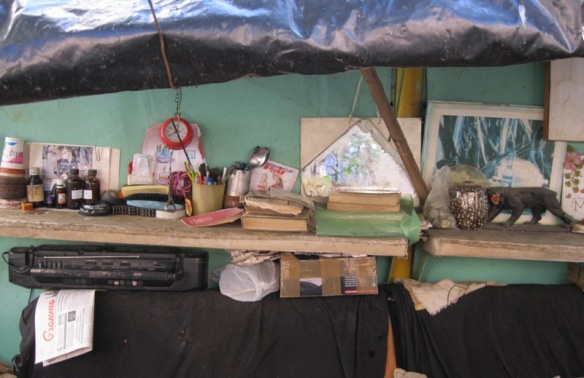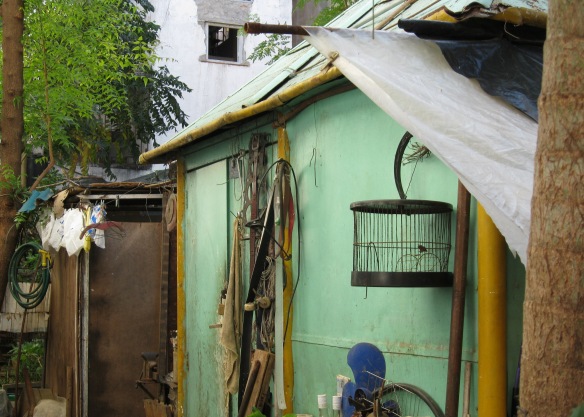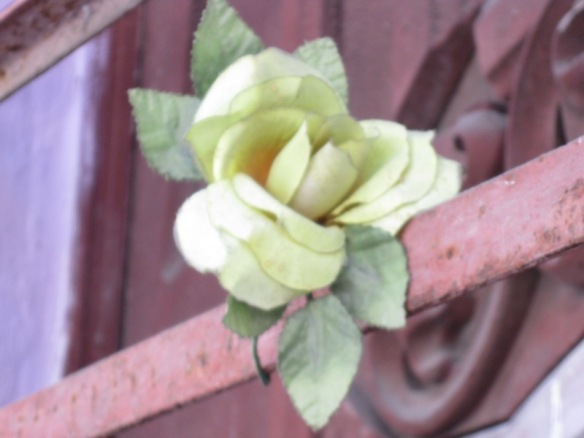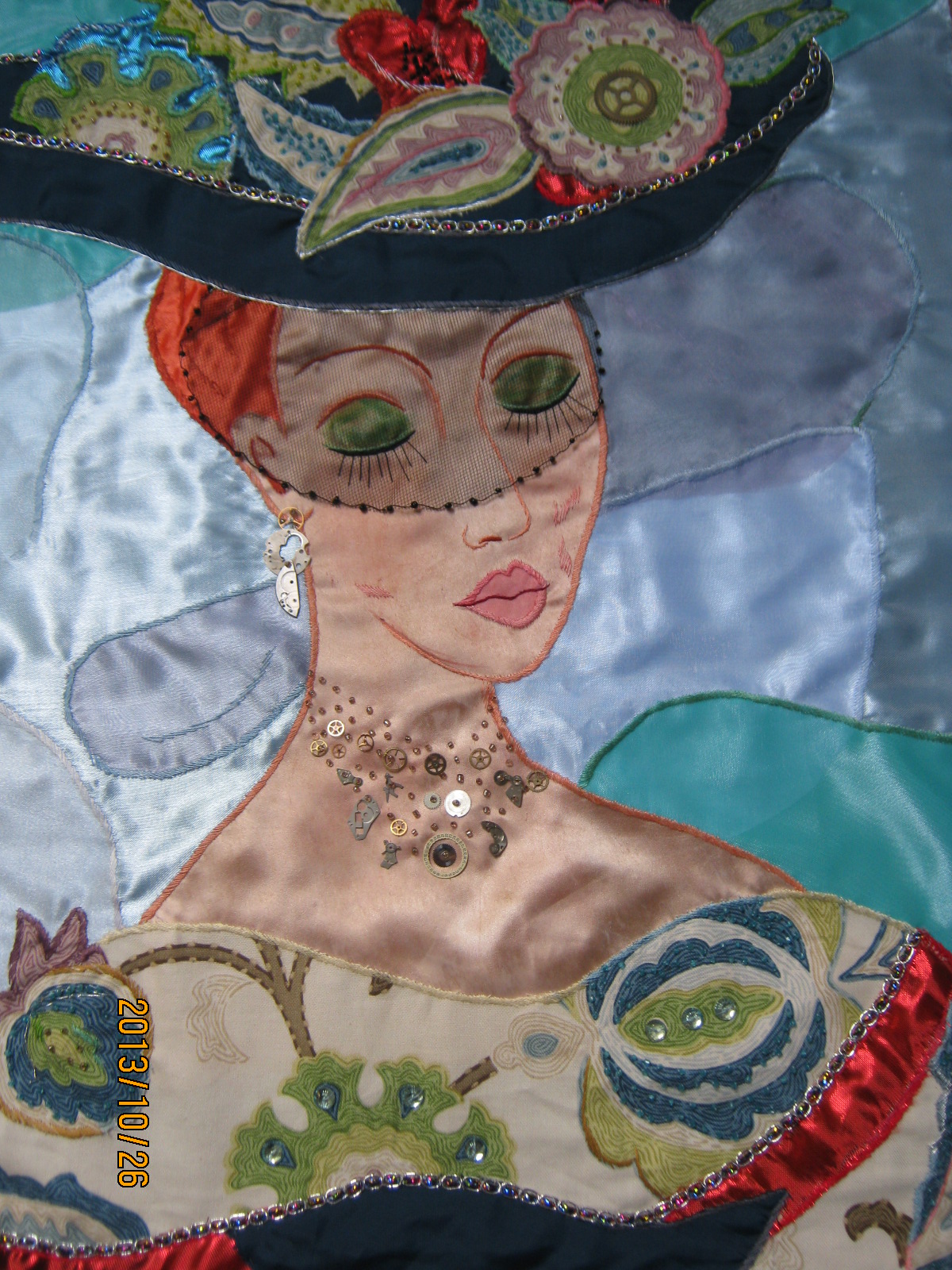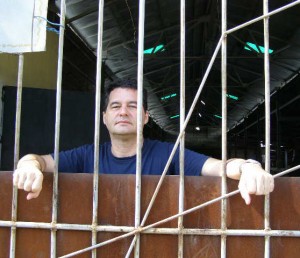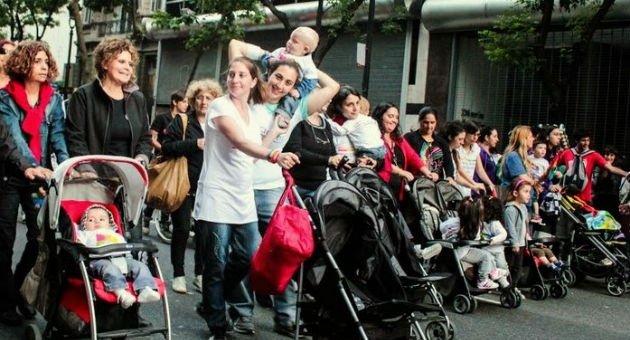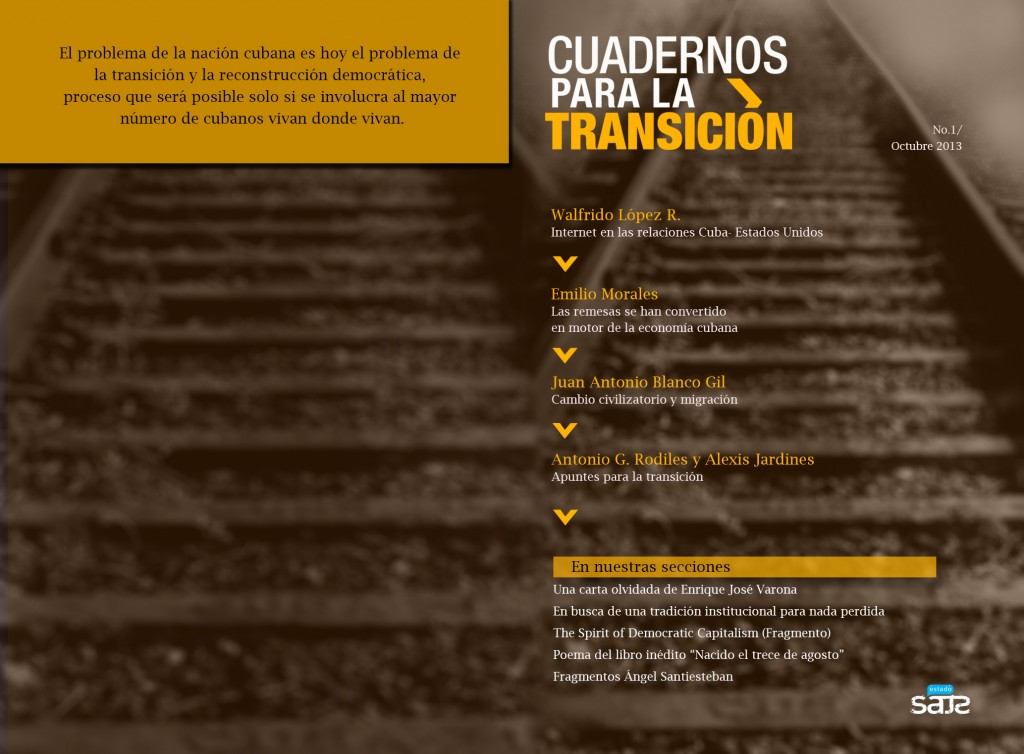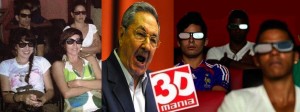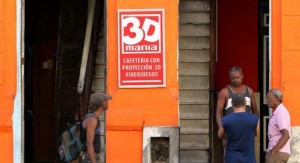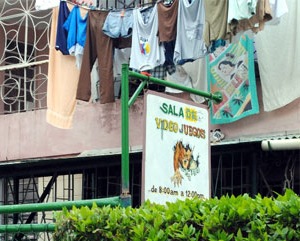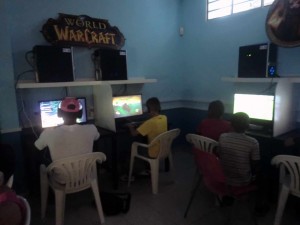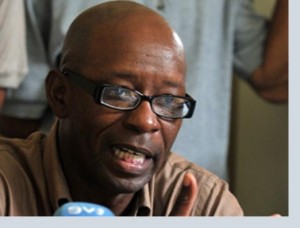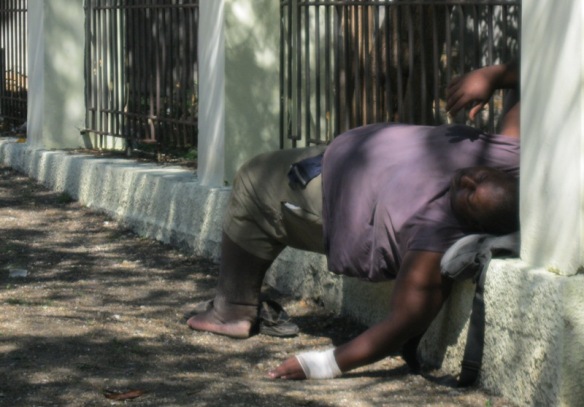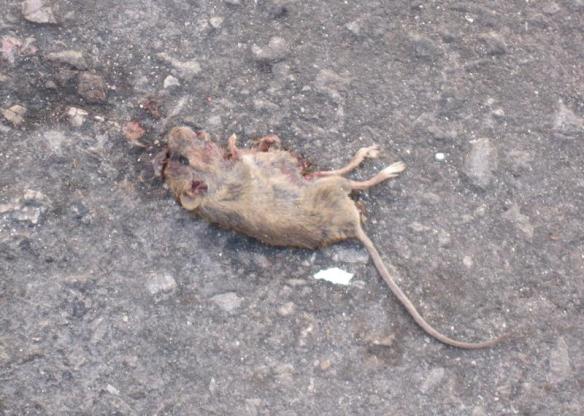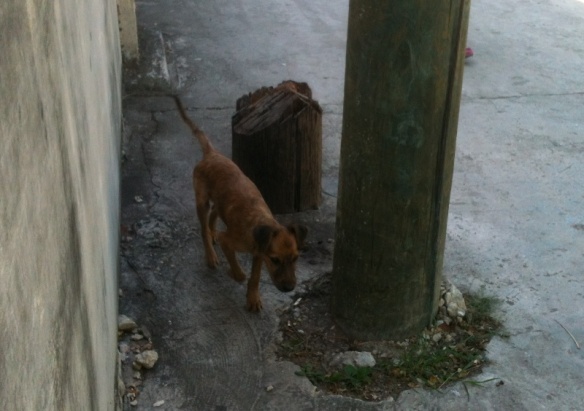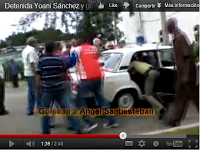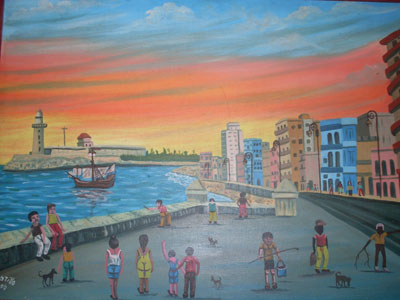
(1)
The unfathomable universe, lonely and cold. Your footprints on the cement, still soft in our sidewalk. Your small steps, near and probably lost: Apology of the p. The world, the city, of the town: Cuba, Havana, Lawton. The sea, the year. The hum of the space left by you. The unspoken words, yet waiting. Like tigers, like me. The sadness of zero years in a country not as deserted but as defected: detested. 2000, 2001, 2002. Cuba, Cuba, Cuba: Hypothesis of country. 2003, 2004, 2005. Armenia, Armenia, Armenia: Hypostasis homeland. And the loud rabid sound of a car that turns the corner and stops in front of me. 666: is a police car. The law finally has remembered me.
(2)
Half hour before, I was a free man of the world. Half hour later I would be a free world of the man. Now, for the time being, that uniformed man interrogated me:
-Your name- he said
I looked at him. I was afraid to say the truth. I hesitated. But at the end I told him. And I was wrong. I think. Or maybe not.
-William Saroyan- I said.
The day was beautiful, the town peaceful, and his gaze was noble. He wanted to destroy me, that is true, as perhaps he wanted to destroy himself too. However, even now I am convinced that the mulatto policeman had a noble gaze. Simply he was tired, overwhelmed by himself. And by me.
-Your indentification- he said.
Of course, I didn’t have identification. Otherwise, this story wouldn’t have existed. I told him. That I didn’t have identification, otherwise our story would have never existed. Plus I was sitting on the sidewalk of Fonts and Beales, the strangest two streets in Lawton, just in front of my house. However, the latter I didn’t say it. I shouldn’t confess everything ahead of time. With the law is like that.
-Then you have to come with me- he said, and started pronouncing phrases through his walkie-talkie. He was euphoric, perhaps he would never forget that day. I was happy for him.
Accompany him. The idea appeared fatal. I told him. He pushed me and handcuffed me great skill, hands to the back. It hurt me, but I kept silent. He hit me without too much force in the legs. It was an action that I never understood. In fact, I still don’t understand it. As if he was looking for something, as if he wanted bend something in me. And that was simply impossible. In fact, it still is.
We rode in police car 666 and the car accelerated up Fonts and then slowed down at Beales, until he parked in front of the police station. At the side of a children’s playground, now in ruins.
I was a good man and I was crying. Crying of happiness.
The driver was looking at me surprised; he would scratch his head under his blue hat. The mulatto too. He couldn’t shift that crazy noble gaze from me. I told him.
-Shut up already, you sound like a little girl- he said
And I followed instructions. And just like that we lost our first possibility, in 50 or perhaps 500 years, to have a conversation.
I don’t know. Now I suppose that was the price of our mutual happiness. Mute happiness.
(3)
Isn’t it suspicious that even language exists? And that also rusty railcars from Railways of Cuba exist, stopped at the Luyano crossroads? And the Metropolitan Buses crossing the railways, shimmering in the moonlight, lunatic moles, like dead tigers almost to be point of being revived from a shot at the heart? And the pain of the yellow lines over a zigzagging street that during the day the asphalt has melted? And the metro buses, and big rigs, and bicitaxis, and other reality particles? And the flat feet of the pedestrians, as pedants and forgivable as any policeman, as flat as the eternal first page of the Jairenik newspaper, as precarious as the cries of the Chinese Fu to the long and narrow neighborhood: Jaileni…, Jaileni…, Jaileni…? And the blue color of the night, of the sea, and the uniforms of the authorities? And the extended hands of the beggars at the restaurant, sitting down without dreams at the old sandwich place at Lawton’s bar waiting not for a coin but that it would never dawn? And the natural flowers, like the plastic ones: kimilsungias with super red petals, Bulgarian roses of worker descent, tuberculosis tulips, and lilies from the Pastrana River? In fact, isn’t it even suspicious to live? Just like your radical absence in Havana, except in my room. Just in like your sad smiling picture, hanging from my wall, perhaps from the neck. Just like that smile without memory that, night after night, you remind me that just now you are forgetting me. From another town, anywhere in the world, except Lawton. From Miami, Mexico, Montevideo; from Manila, Moscow, Milan; from Marcella, Melbourne, Madrid or La Mecca: amnesia of the sh. Like the smile three times sadder of that woman in black and white hanging at the lobby of the police station. Under it, someone has written her name and hung a flower. Plastic, of course. But the typography is miniscule and I can’t read it from the bench on which I am detained without a major accusation. Perhaps “Celia”, perhaps “Cielo”, perhaps “Celia in the Cielo” or the reverse. I really don’t know. And me, isn’t it suspicious that I even exist? And the tiger, the beautiful beast that ignores which of the successive cages they have moved him to, isn’t it very suspicious this sudden exhibition?
(4)
They took my fingerprints. There was no ink and they did it with an open pen refill. Blue ink, just like the cap of the driver, and the splendid sky of that January, and the uniforms of all those men there. Good men forced to all like the same color fabric.
They took my fingerprints. For the first time I saw my fingerprints. All fingerprints look like those of a criminal. However, not even criminals can stop being good, despite the ink marks on the top right corner of a “Detention Form”. Or Defunction.
Next to me an old lady was shaking, her hands opening and closing the zipper of her bag. A nylon bag, full of something that no one could now imagine what. Cubanacan S.A., Made in Armenia.
To my other side, squeezed on the other side of the bench, two young girls of 15 or 16 looked at Celia or perhaps at the fake room ceiling. Either way, both with rabies. Good girls trapped by the equitable strap of hate. Black. The old lady was white. Three sad faces and not even a trace of the tiger. I simply didn’t exist. And it was fine like that. If I had existed then, the story wouldn’t exist later.
At that time, kids were screaming outside, having fun in their play ground or paradise now in ruins. A man dressed in plain clothes walked up to me. He kneeled down at the bench and looked at me with all the benevolence of the New Year, century and millennium. After that look without bad intentions, Armageddon could come: humanity was saved. I sensed that this man was a saint and that he was far above good and evil.
-They have told me that your name is William Saroyan- he said.
I nodded.
-Could we trust in your word?- he said
I nodded.
-And in the wildness of your look?- he said and smiled.
I nodded, and also smiled.
And without realizing, we were giving each other a long hug in front of everyone’s surprise. Incapable of the smallest reconciliation, them; incapable of the greatest rancor, us. However, everything had been an error. Horror always is. And then, the man dressed in plain clothes whispered just like when someone says I love you in your ear:
-You are under arrest.
Definitely, he was an immortal.
Or perhaps I loved him.
Or both things at the same time.
(5)
And, ultimately, they are nothing but days of the universe flush with January, time retracted by the tedium of looking at it all wrong. A Sputnik knife, or an Inout pressure cooker, an Amadeo shoe. Nothing fits, everything evaporates in the evaporated milk of reality. Nata Nela. I had a Polaroid camera , and the world at times reminded me a snapshot scene and sometimes a very scenic snapshot. I took photos. Nothingness. Objects left behind. Books without letters. Kids that died with me. Waterfall promises. Wishes to feel wishes. Empty looks, emptied by the boredom of looking at it in reverse. Mine on a rooftop in Lawton, for example. Yours in a corridor of Armenia, for example. Your look humiliated by another Polaroid camera far away, on the other side of the ocean, perhaps two or three meters away: hanged, perhaps by the neck, over the most solitary wall in my room, in my house. And the Caribbean Ocean, the year of the Horse. The indigo blue, the blue uniform from the Industriales baseball team. Nothing settles, all memories float like drool. And, ultimately, they are nothing but days of the universe flush with January: lost time, or even better, a story out of time.
(6)
-William Saroyan, isn’t your real name Rock Wagram? – said investigator number one.
-No- I said.
-William Saroyan, isn’t your real name Arak Vagramian? – said investigator number two.
-No- I said.
-William Saroyan, isn’t your real name Aram Garoglanian? – said investigator number three.
-No- I said.
-William Saroyan, isn’t your real name Wesley Jackson? – said investigator number four.
-No- I said.
-William Saroyan, isn’t your real name Ulises Macauley? – said investigator number five.
-No- I said.
-William Saroyan, isn’t your real name Armenak Saroyan? – said investigator number six.
-No- I said. That’s only my father’s name.
-William Saroyan, isn’t your real name Takuji Saroyan? – said investigator number seven.
-No- I said. That’s only my mother’s name.
-William Saroyan, do you swear then be called William Saroyan and nothing else than William Saroyan? – the man dressed in plain clothesshook me by the shoulders.
-No- I said. That’s only my name.
(7)
Every man is always a good man in a mistaken world. No man is capable of changing even half the story around him. Nor a word. Nor a syllable. Nor silence. Loneliness and sadness are the tribute and the failure of every good man. That’s why we are tragic and innocents and we have long distance loves that will never leave us. Even if we are jailed because the law, finally, has remembered us and it asks us to confess some name, even a false one. Preferably a false one, but plausible: Who would dare to profane the word truth? Itis like a beautiful silence that at the end always obliges us to participate. It overlaps and involves us. From there, then, our implied guilt. From there, out notable guilt. These are the rules of the game. Good laws, like all laws have always been.
(8)
I was released, on my word. That is, under silence. They ask me not to say to anyone what had taken place. It was useless to convince them that in reality nothing had taken place, and it was just there where my story was. I was released even without a fine, by the pure trust of the police institution.
When I got home they were holding a wake for me. My mother, who had not yet passed away, was pouting again. And my father, dead in 1990 something, was consoling her as badly as it was impossible:
-Don’t cry, Takuji. Our son will soon be fine – he would repeat.
The neighbors lookedat them as if they were raving lunatics. And they were. Then they looked at me, as if suddenly they had become the raving lunatics. And they had. And even then, they all slipped stampeding from my wake, the most hysterical yelled “Alleluia, he has been resuscitated.” But I only kissed my mother and a squeeze for my father. It was so unknown that I guess it was just as well. I assured them that there was no horror:
-Dear parents: nothing has happened here – I lied to console them. It has all been a misunderstanding.
And then I walked through the mansion at Fonts and Beales, straight through the longest and narrow halls of the world, and I closed the door of my room to cry. It was a winter cold: the driest season of the year, of the old century, and of the new millennium. Therefore, not one tear I cried.
I looked at the picture of my old love, also in black and white. Just like Celia, or Sky, perhaps Celia in the Sky, or to the contrary, in the police station. Just like the mud accumulated on the sidewalk after the successuve stations of the world. And at that point the phone rang and it was her.
Her, her, her.
After exactly one decade, I heard her voice again. The voice of my old love, or at least, my own voice pronouncing again that old word: love.
(9)
All man who lives without love has to look for love. No man can live in love for too long a time, nor does he want it even if he wants it. And at the same time, love too soon grows bored from any man’s history. These are also, the rules of the game. Magnificent rules, for a magnificent creature. The rest is all literature: literally, hard letters. Exquisite cadaver.
(10)
-I have missed you a lot- she said in Armenian from Erevan.
-Me more- I answered in Armenian from Lawton.
It had been a long time since I had spoken the mother tongue. All the same, it took half of phrase to restore my country to me. I remembered the first verse of the hymn: “Oh, Armenia, the absent sea under your blue peaks on the horizons, they are enough promise for my adoration.”
-And I adore you too- she instantly replied, now talking in Cuban from Europe. The calling card is ending: so is best that I call you tomorrow.
Best tomorrow.
And she hung up.
My old love hung up, hung up, hung up.
Leaving me with the silence in my mouth. Leaving again hanged only from my wall, perhaps by the neck. As smiling and sad as if my room were the lobby of the police station.
And I didn’t even have time to answer her in Cuban from Cuba. There was a knot in my brain before the one in my throat. It had been a long time that I hadn’t spoken that borrowed tongue. Stray. On occasions, not even half a million phrases are enough to be silent.
(11)
The solitary, fathomless and universal cold. Your footprints in the now rigid cement of our sidewalk: rigor mortis. Your footprints dissected, distant, definitely unknown: deception of the d. The mute, the wicked, the mud: Cuba, Havana, Lawton. The sea, the year. The ringing of the silence left by you. Never ask for whom the bells are silent. The over used words, still lying in wait. Like tigers, like me. The sadness of the zero years in a country not as deserted as defected: detested. 2000, 2001, 2002. Armenia, Armenia, Armenia: homeland bandage. 2003, 2004, 2005. Cuba, Cuba, Cuba: homeland apostrophe. And the endearing silence of the car that turns the line and stops in front of me: the joke of the bells announcing that the paper ended. The rusty keys of my old Underwood still doubling the alarm. All aboard. All aborted. Until you finally forget justice. The good thing is that one can dispense of the righteous. It’s as easy as to dispense with a beginning, with no story, and to simulate an end. Irreparable laws to mitigate, without too much success, the noble excellence of our unreality. Good laws, of course, as any laws they should always be.
Translated by LYD
3 November 2013
